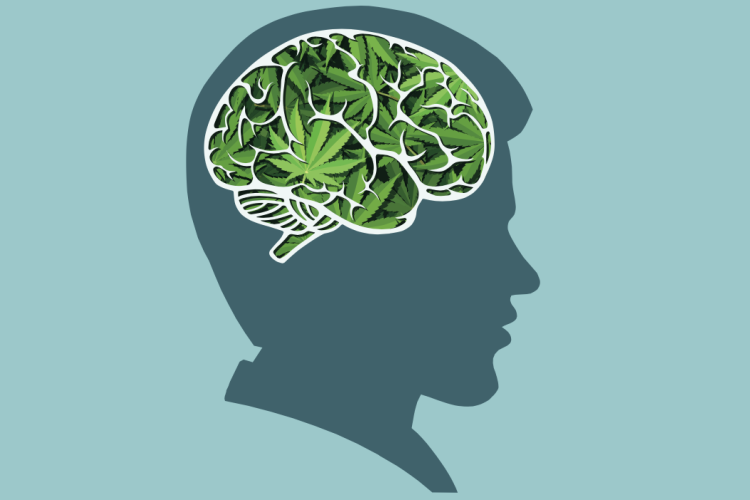
- Euphoria
- Memory
- The perception of time
Cannabis Effects: What Causes the Euphoric Intoxication?
One important detail that makes cannabis so compelling is that its cannabinoids, including THC, are plant-based analogues to compounds our bodies produced. In a very real sense, they “speak the same language.”
So…why does THC make us feel intoxicated? One reason is that—like alcohol, caffeine, and sugar—it affects the levels of the neurotransmitter dopamine in the brain’s reward system, resulting in a feeling of relaxation and euphoria. You probably won’t be surprised to learn that about some of the other activities that stimulate these parts of the brain. They include:
- Sex
- Eating
- Exercise
- Shopping
- Gambling
Cannabis Effects: Is Cannabis Bad for Memory?
One crucial area of study is the question of how cannabis affects memory. The way we create and then access our memories is complex, utilizing different parts of the brain for different functions. For instance, “working memory,” or the short-term memory functions we require to learn new things, and spatial memory—your understanding of your immediate environment—are mainly handled in the part of the brain called the frontal lobe. By comparison, long-term memories—which are generally not thought to be as affected by cannabis—are typically processed and stored in the medial temporal lobe.
Both working and spatial memory can be negatively affected by cannabis consumption. In a test of working memory, a 2004 paper published by a brain research institute showed that cannabis impaired the performance of subjects immediately after consuming it. More reassuringly, another study suggests that cannabis slows—but doesn’t permanently damage—working memory.
When it comes to spatial memory, another 2004 study found that chronic users must use more processing power to achieve the same efficacy as non-users. And tests on various animal subjects is fairly uncontroversial: Cannabis diminishes situational awareness, making it harder to remember potentially important details about your immediate surroundings.

Cannabis Effects: Does Time Really Slow Down?
One curious cannabis effect is that it changes our perception of time, as demonstrated in a 2012 study. This occurs in part because cannabis accelerates our internal clocks, in particular a brain system called the thalamo-cortico-striatal circuit, which is known for containing a large number of cannabinoid receptors. The working theory is that when you consume cannabis, this contributes to a distortion or disruption of our normal clocks, causing time to subjectively slow down as it works faster.
It’s believed that this cannabis effect is most pronounced for those who rarely consume cannabis. Those who do so more often—say, two or three times a week—don’t experience the same distortion of time. In other words, the more you use cannabis, the higher your cannabis tolerance. Our brain, it appears, adapts to this new stimulus and self-corrects. That said, if you’re new to cannabis or only consume it infrequently, you should be aware of this effect and plan accordingly!
If you have any questions about cannabis effects, how it affects the brain or any other cannabis-related topics, drop us a line. We’re here to help!

